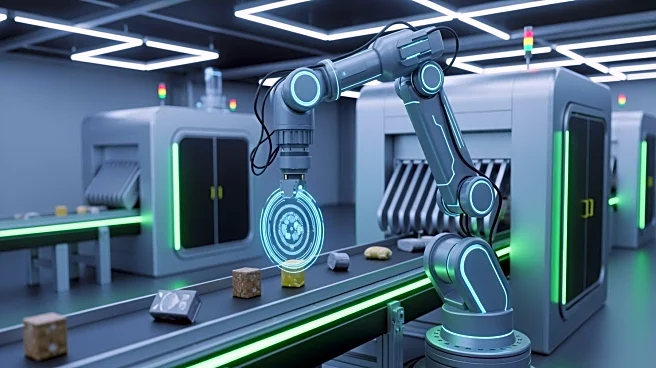What's Happening?
A recycling plant in Berlin, Connecticut, has integrated artificial intelligence (AI) technology to improve its sorting process. The plant aims to make the sorting of recyclable materials more efficient
and faster by utilizing AI systems. This technological advancement is expected to streamline operations, reduce human error, and increase the overall effectiveness of the recycling process.
Why It's Important?
The adoption of AI in recycling processes represents a significant step forward in waste management technology. By improving sorting efficiency, the plant can potentially increase the volume of materials recycled, thereby reducing waste and environmental impact. This move could set a precedent for other recycling facilities, encouraging wider adoption of AI technology in the industry. It also highlights the growing role of technology in addressing environmental challenges and improving sustainability practices.
What's Next?
As the recycling plant continues to implement AI technology, it may serve as a model for other facilities looking to enhance their operations. The success of this initiative could lead to further investments in AI and other advanced technologies within the recycling industry. Additionally, the plant's progress may attract attention from environmental groups and policymakers interested in promoting sustainable practices.










